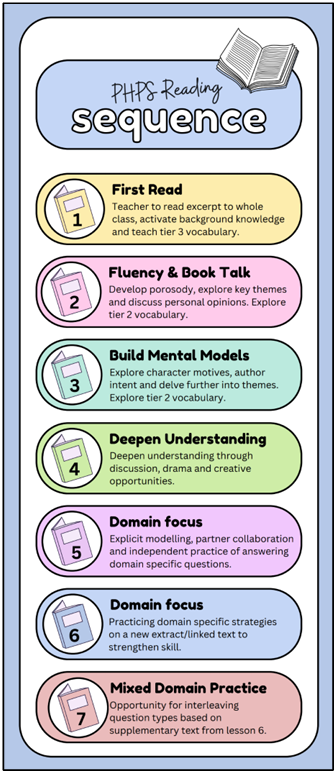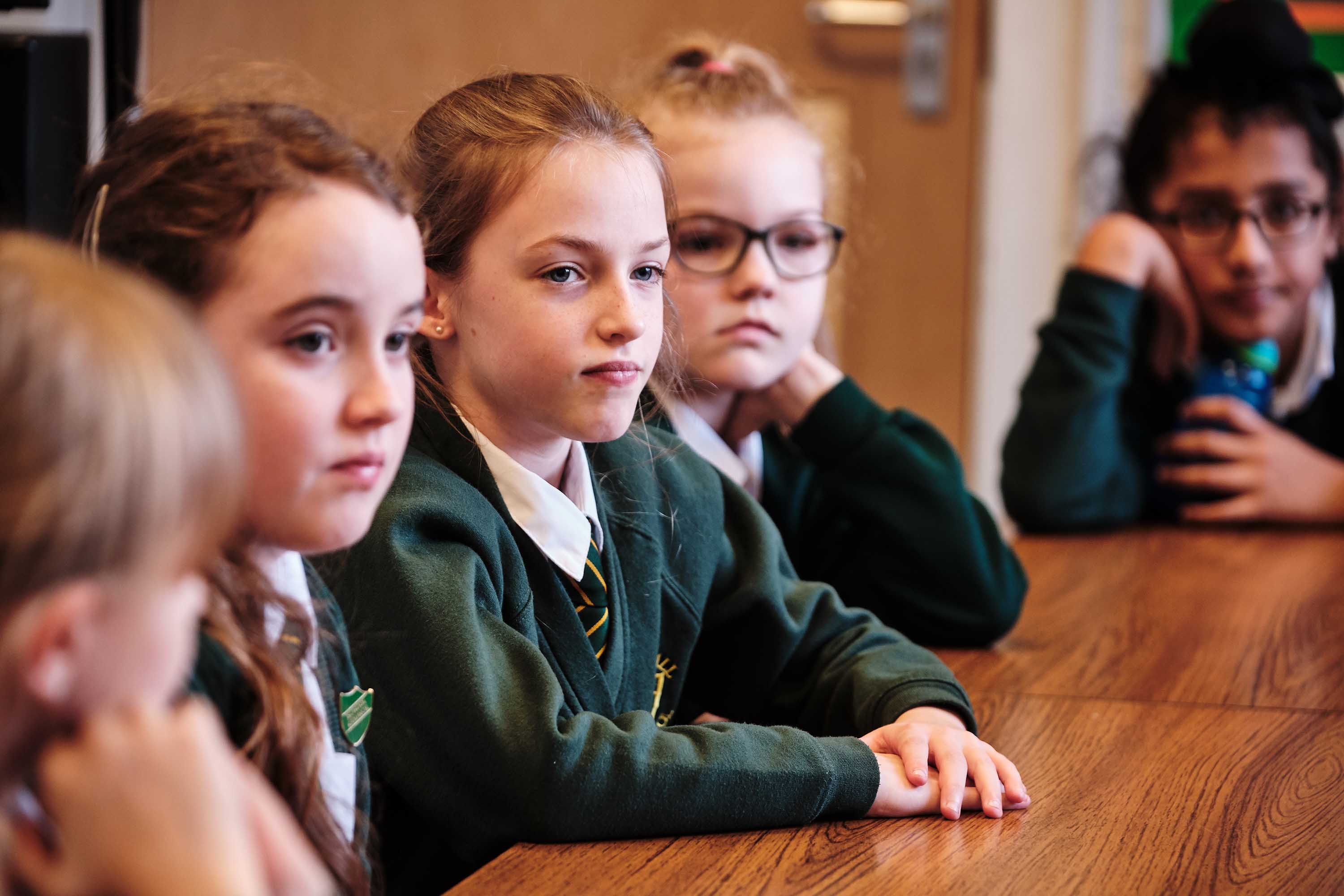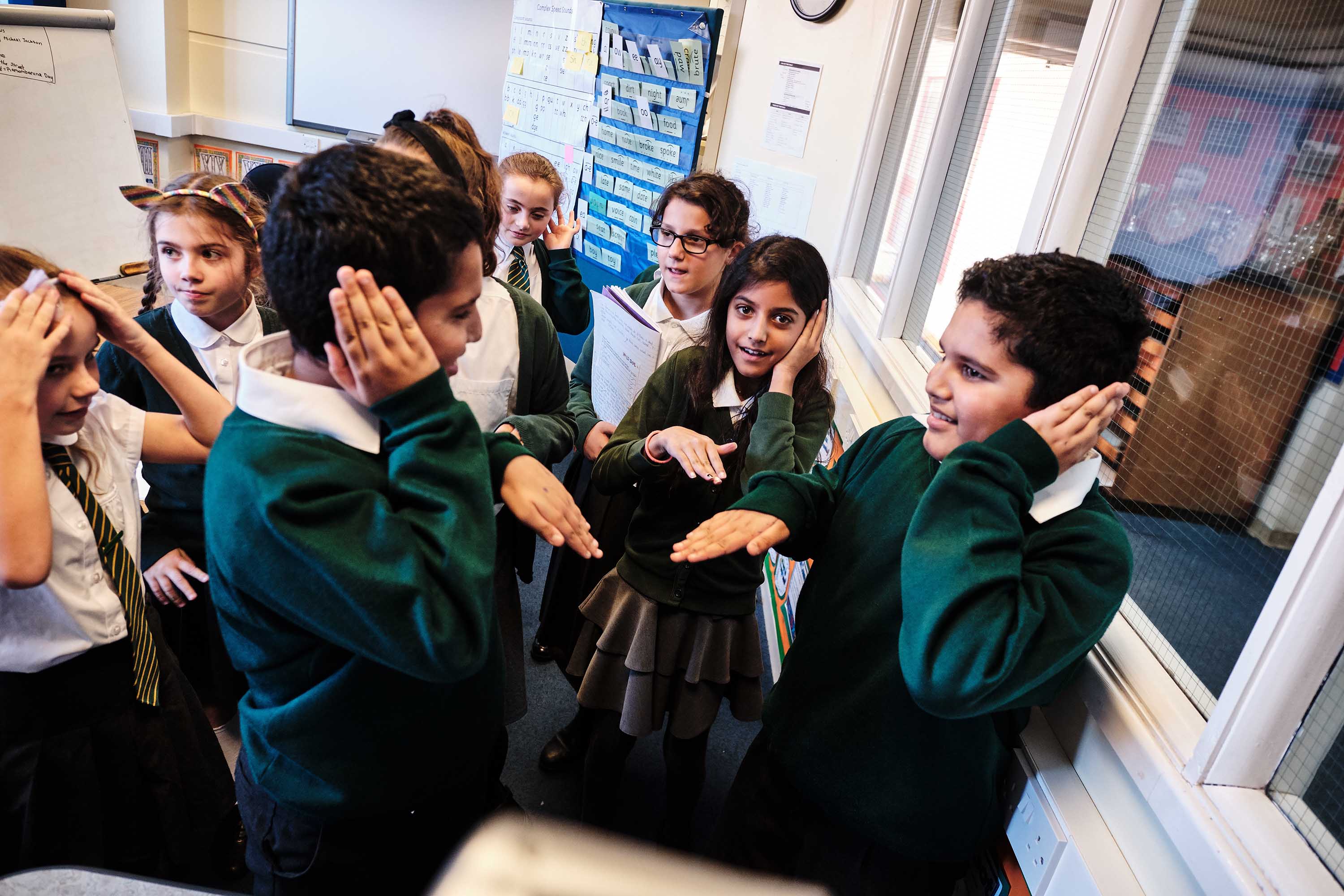English
Subject Leader – MRS ROBINSON
Our vision for english
At Perry Hall Primary School we work hard to deliver a broad and balanced, inclusive curriculum where every pupil has the right to GROW and achieve their full potential. English lies at the heart of teaching and learning in each subject and we strongly adhere to the principle that English is a significant life skill that is essential to success in school and beyond. We ensure that pupils are able to share their joys and passion for reading with peers and draw from a breadth of literature in their own work. As well as this, we endeavour to offer our pupils with opportunities to become effective communicators who can articulate their ideas both orally and through various written forms.
English is fundamental to personal and intellectual GROWTH and it has a pre-eminent place in our curriculum. Through our engaging and language rich curriculum, we endeavour to offer pupils opportunities to develop their command of English by offering a number of opportunities where pupils will:
• Build listening skills to capture meaning and build frameworks of thinking and understanding.
• Develop strong oracy skills in order to structure thinking, articulate ideas and engage with others through spoken language.
• Hold an interest in words and their meanings in order to build a more extensive vocabulary.
• Read fluently and demonstrate a good understanding of what has been read.
• Be inspired by high quality texts and develop a love for reading where pupils choose to read frequently for enjoyment.
• Have a proficient command of written English in order to communicate effectively with others.
• Demonstrate a strong awareness of audience and the ability to adapt language and style to suit a range of purposes.
• Establish an understanding of both generic language disciplines and subject-specific language disciplines.
• Develop an awareness of subject specific language disciplines, across the curriculum, and utilise these in an increasingly effective manner to communicate within different subject areas.
• Exhibit a good understanding of grammar and punctuation.
• Display a legible, fluent handwriting style.
• Develop confidence and competence to produce high quality writing.
• Showcase their imagination, creativity and critical awareness in all areas of the English curriculum and beyond.
At Perry Hall Primary School, we believe that a strong English curriculum is imperative to driving standards in education. We strive to provide all pupils with exposure to a diverse variety of high-quality texts and stimuli as well as many purposeful opportunities to practise and review key skills across the curriculum.
For us, a good quality English curriculum should foster a love for reading, writing and oracy for every pupil whilst adhering to the requirements outlined in the National Curriculum for English.
At Perry Hall Primary School we work hard to deliver a broad and balanced, inclusive curriculum where every pupil has the right to GROW and achieve their full potential. English lies at the heart of teaching and learning in each subject and we strongly adhere to the principle that English is a significant life skill that is essential to success in school and beyond. We ensure that pupils are able to share their joys and passion for reading with peers and draw from a breadth of literature in their own work. As well as this, we endeavour to offer our pupils with opportunities to become effective communicators who can articulate their ideas both orally and through various written forms.
For our pupils, the study of English develops the ability to listen, speak, read and write for a wide range of purposes, including the communication of ideas, views and feelings. Pupils are able to express themselves creatively and imaginatively and gain an understanding of how language works by looking at its patterns, structures and origins through the study of a variety of text types. Through this deepened understanding, pupils are able to showcase their knowledge, skills and understanding through a myriad of oral and written opportunities across the curriculum.
Please follow the link to At the heart of Talk for Writing, are high-quality texts that support pupils to understand the language structure, tone and formality required in their own writing. Talk for Writing guides pupils from dependence towards independence, with teachers using shared and guided teaching to develop the ability in children to write creatively and powerfully (Pie Corbett).
Through the use of Talk for Writing, we wish to empower children to see writing as a creative subject where language, punctuation and meaning can be woven to paint a vivid picture in their reader’s mind. We want our pupils to value writing opportunities and immerse themselves in building a world through the manipulation of words, phrases and sentences.
Talk for Writing is powerful because it is based on the principles of how children learn. It enables children to imitate the language they need for a particular topic orally, before reading and analysing it in order to write their own versions.
The structure of our writing units is:
- Cold task – (completed at least one week prior to the start of the unit to ensure that targets can be generated, and planning tailored to meet the children’s specific learning needs).
- Creative Hook – used to excite the children and engage them into the writing journey.
- Model Text introduced with a story/text map to support the learning – which has been tailored in light of the cold task.
- Vocabulary focus – vocabulary is discussed with children at every opportunity, exemplified and put into context. Vocabulary is displayed around the environment.
- Oral retelling and immersion of the text
- Comprehension – reading as a reader to understand the text.
- Identifying the underlying structure of the text (Boxing up)
- Sentence level skills work – short burst writing linked to vocabulary, grammar or text structure highlighted from targets.
- Innovation – pupils make changes to the text. They learn, rehearse, and write a new version of the text.
- Independent application – Pupils must have the opportunity to independently apply the skills they have learnt in English and whenever possible be given the opportunity to apply these skills across the curriculum.
- Publishing and celebrating – Children are encouraged to show case their work through different publishing and presenting opportunities. We have regular corridor displays of children’s writing.
Click here to read our writing progression overview.
Please follow the link to view our Whole School Talk for Writing Overview
At Perry Hall Primary School, we follow the Kinetic Letters programme to teach handwriting. For us, handwriting is a very important part of each child’s development in English as it allows them to effectively showcase their writing intent, take greater pride in their presentation and improve fluency in writing.
-
- Handwriting is taught four times per week and is centred around the following intentions for all pupils that can physically access the programme:
- To have fluent, legible and speedy handwriting that can be performed automatically, so that the attention of the brain is on the content of the writing.
- To have the stamina and skills to write at length, with accurate spelling and punctuation.
- To have greater competency in transcription (spelling and handwriting) and composition.
- To write clearly, accurately and coherently, adapting their language and style in and for a range of contexts, purposes and audiences.
- To have a comfortable and efficient pencil hold and learning position.
The key principles of the programme are:
- Building physical strength underpins handwriting and concentration. This knowledge informs the working positions that children use for writing and the strengthening targets they work on.
- Pupils are not expected to do anything before they are developmentally ready for it.
- The different components of writing are mastered individually before being used in combination.
- Letters are learnt as movements, not as visual shapes, and movement remains central to developing automaticity in letter formation, flow and fluency.
- Posture is important in developing the correct position for handwriting and so children are taught how to organise their working position and paper position to enable comfortable and fluent writing from the start.
- Correct pencil hold is taught from the start (ie as soon as a tri-pod grip is developmentally appropriate).
- Reading and writing are reciprocal processes; strengthening handwriting skills will support reading and writing development.
Click here for more information and videos about how to support your child with their handwriting.
Early Reading is taught daily through the use of synthetic phonics as the initial and most important approach to the teaching of reading. The Read Write Inc. programme supports the teaching of phonics, reading, writing and spelling, through the use of a systematic approach, across Reception and Year 1 and supports targeted learners to keep up in subsequent year groups. We support every pupil, who is at the beginning of their English language journey, to read with confidence, develop a love of reading and apply their skills competently to writing. We aim to ensure that all pupils:
-
-
- Decode letter-sound correspondences quickly and effortlessly, using their phonic knowledge and skills.
- Read common exception words on sight.
- Read aloud with fluency and expression.
- Understand what they read.
- Write confidently, with a strong focus on vocabulary and grammar.
- Spell quickly and easily by segmenting the sounds in words
-
Click here to see our reading overview.
Click here to see our reading progression overview.
Please follow the link to a useful page which will explain how RWI phonics is taught RWI Phonics | Perry Hall MAT
We aim to foster a love for reading through a Whole Class Reading approach which allows teachers to ask highly focused questions, immerse pupils into a plot through drama and discussion, explore and develop vocabulary and equip all pupils with the necessary skills to be successful readers. High quality texts are selected to engage all learners. Through our exploration of fiction and poetry, which is linked to the current Talk for Writing unit, we aim to develop each pupil’s ability to infer, deduce and speculate on the linguistic, structural or grammatical choices made by an author or poet. We use different texts as an opportunity to grow a rich spoken vocabulary and expose children to a plethora of literature and poetry, old and new, that not only reflects their realities, but also showcases the world through the words on the page. We use non-fiction texts to deepen the children’s understanding of a wider curriculum area that is currently being studied, seeking to ensure that children appreciate reading and how it can help them to learn.

Whole class reading happens a minimum of four times per week for 30 minutes and is delivered across Y2-Y6. Each reading cycle lasts two weeks. Once pupils have mastered word reading, the development of comprehension skills becomes the principal focus. In Key Stage 1, this initially centres on the basic retrieval of key information in texts, before moving onto developing the ability to read between the lines and draw simple inferences and conclusions from texts. In Key Stage 2, these central comprehension skills of retrieval and inference are then developed further through with the use of a broader range of more complex and sophisticated texts. Additional comprehension skills such as comparing, summarising, and predicting are also developed. Lessons teach skills through a variety of methods including, discussion and drama as well as explicit instruction and modelling.

Click to view the PHPS Reading Overview 2024-25.
Click here to see our reading progression overview.
Reading is at the heart of all that we do. A love of reading and a rich diet of story time, rhyme and song is central to every child’s learning from their very first day. From Reception to Year 6 all children experience lively and engaging reading of high-quality texts daily. Reading is timetabled across the day through Love of Reading sessions, reading to learn opportunities across the curriculum and the explicit teaching of reading skills.
Through our Love of Reading sessions, children are read to for twenty minutes of every day from a carefully selected book that either supports a curriculum area or is chosen as a firm favourite for children in that year group. Children are also taken to visit the school library on a fortnightly rotation and are given the chance to borrow a book to read for pleasure at home. Pupils also have access to a reading corner in class and the books are continually refreshed.
Alongside this, teachers and support staff work hard to listen to individual children read throughout the day, aiming to hear every child read at least once per week. Home reading is recorded online via BoomReader where parents can record comments to share with the class teacher.
Furthermore, Nursery our Reception pupils are gifted with a reading buddy at the start of the year. This is a small teddy bear that has one simple care instruction: to be read to for ten minutes each night.
In order to provide a range of new, diverse and exciting books for the children, Perry Hall Primary School takes part in the Scholastic Book Fair twice per year. The school receives commission for all books purchased by families and this money is used to buy more books for our school library. The library and classroom reading areas are regularly updated to ensure all pupils have access to a range of literature and non-fiction texts.
Click here to see our love of reading overview.
Click here to read our English leaders bio.



